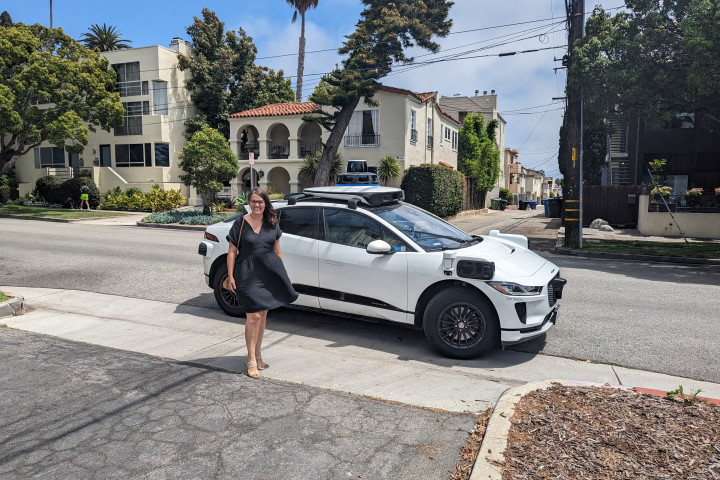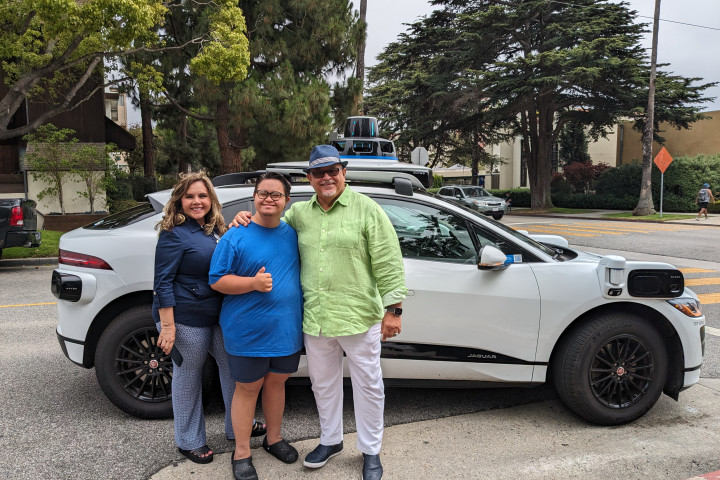Female leaders in mobility join inaugural Self-Driven Women event
September 10, 2020
Tekedra Mawakana, Raquel Urtasun, Michelle Avary and Tilly Chang spoke about being female leaders in mobility.
Growing up in the Bay Area, transportation leader Tilly Chang says that, for her, transportation represented freedom – whether she was taking the bus to the mall or riding her bike to the bowling alley. Little did she know then that she would grow up to lead the agency that oversees transportation for all of San Francisco County.
Chang has now worked for the San Francisco County Transportation Authority, which plans, funds, and delivers local and regional transportation projects, for 17 years. She currently serves as the agency’s executive director.
The freedom that Chang describes – the ability to easily and independently travel to and from the most essential destinations – is often summed up in just one powerful word: mobility. That was the focus of a live event featuring women leaders in mobility and hosted by Waymo.
Women leaders in mobility share their perspectives
The virtual panel discussion, the first in a series titled Self-Driven Women, was moderated by Waymo COO Tekedra Mawakana on August 26, Women’s Equality Day, and also featured Michelle Avary, head of automotive and autonomous mobility at the World Economic Forum, and Raquel Urtasun, chief scientist at Uber ATG.
The event was billed as a way to bring together and provide a platform for women in transportation. Women currently comprise just 15% of the transportation workforce, according to the Mineta Transportation Institute at San Jose State University.
Urtasun, who is also a professor at the University of Toronto, acknowledged the challenges that come with being a woman in the field.
“This journey hasn’t been easy but it has really strengthened me,” Urtasun said. “I think it’s important to tell the younger generation that you’re not alone when you suffer from discrimination and biases.”
Avary, who has a background in traditional economics, added that, at today’s current rate of change, it will take 257 years to close the global gender pay gap (across all industries worldwide, not just transportation in the U.S.). Closing discrepancies in both hiring and pay requires companies to act very intentionally and to increase representation in all phases of the talent pipeline.
“It’s not just getting a seat at the table or being invited into the room,” she said. “It’s actually being heard.”
Panelists: Women are essential to driving mobility forward
Avary said she believes that it is important for women to work in the field because they bring perspectives that are essential to understanding how diverse users experience transportation. That, she said, is important to solving the biggest transportation challenges.
“If we don’t ask questions about how women, elderly, and lower-income families travel... how much they pay for mobility, we can’t solve [the challenges],” she added. “That requires leadership that represents the community.”
Chang expressed a similar sentiment, pointing out the importance of documenting through research how people travel in order to diagnose and solve problems.
“We can’t just consider peak commute hours, for instance, and ignore the needs of women and caregivers with very different schedules and challenges,” she said.
“Access to opportunity and mobility are so closely aligned,” Mawakana explained during the event. “There’s still more work to be done to make [transportation] technology available to more people."
Mentorship is necessary to boosting female leaders in mobility
For women working in transportation, all three panelists emphasized the importance of having supportive, encouraging mentors.
With the goal of providing a network and foundation for women in mobility to succeed, Waymo plans to host these events regularly. Watch the most recent discussion here and follow the #SelfDrivenWomen hashtag on Facebook and Twitter for updates.
Sign Up
Join us in the most important conversations about how autonomous driving technology may shape the future of safety, mobility, community, and society.


